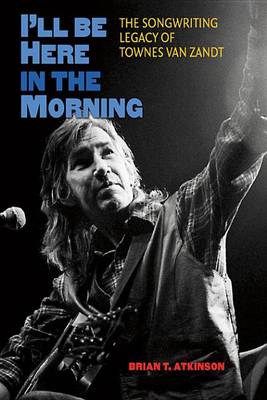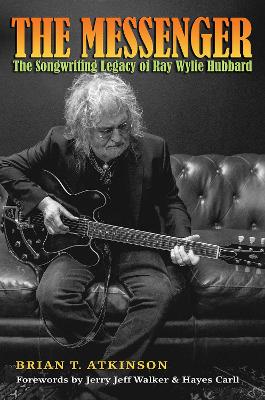John and Robin Dickson Series in Texas Music
2 total works
The writer of such influential songs as "Pancho and Lefty," "To Live's to Fly," "If I Needed You," and "For the Sake of the Song," Townes Van Zandt exerted an influence on at least two generations of Texas musicians that belies his relatively brief, deeply troubled life. Indeed, Van Zandt has influenced millions worldwide in the years since his death, and his impact is growing rapidly. Respected singer/songwriter John Gorka speaks for many when he says, "`Pancho and Lefty' changed-it unchained-my idea of what a song could be."
In this tightly woven, intelligently written book, Brian T. Atkinson interviews both well-known musicians and up-and-coming artists to reveal, in the performers' own words, how their creative careers have been shaped by the life and work of Townes Van Zandt. Kris Kristofferson, Guy Clark, Billy Joe Shaver, Rodney Crowell, Lucinda Williams, and Lyle Lovett are just a few of the established musicians who share their impressions of the breathtakingly beautiful tunes and lyrics he created, along with their humorous, poignant, painful, and indelible memories of witnessing Van Zandt's rise and fall.
Atkinson balances the reminiscences of seasoned veterans with the observations of relative newcomers to the international music scene, such as Jim James (My Morning Jacket), Josh Ritter, and Scott Avett (the Avett Brothers), presenting a nuanced view of Van Zandt's singular body of work, his reckless lifestyle, and his long-lasting influence. Forewords by "Cowboy" Jack Clement and longtime Van Zandt manager and friend Harold F. Eggers Jr. open the book, and each chapter begins with an introduction in which Atkinson provides context and background, linking each interviewee to Van Zandt's legacy.
Historians, students, and fans of all music from country and folk to rock and grunge will find new insights and recall familiar pleasures as they read I'll Be Here in the Morning: The Songwriting Legacy of Townes Van Zandt.
Featuring interviews with well-known artists such as Eric Church, Steve Earle, Kinky Friedman, Chris Robinson, and Jerry Jeff Walker, and also mining the insights of up-and-comers such as Elizabeth Cook, Jaren Johnston, Ben Kweller, Aaron Lee Tasjan, and Paul Thorn, The Messenger makes clear why so many musicians across a wide spectrum admire Ray Wylie Hubbard. Readers will also learn why "Redneck Mother," the song that put Hubbard on the map for most listeners, is also a curse, of sorts, in its diminution of both his spiritual depth as a lyricist and his multidimensional musical reach. As Hubbard himself says, "The song probably should have never been written, let alone recorded, let alone recorded again.. . . the most important part of songwriting is right after you write a song, ask yourself, "Can I sing this for twenty-five years?'"
Atkinson's work makes a convincing case that Ray Wylie Hubbard's truest and most lasting contributions will long outlive him. And, with a couple of good breaks, they may even outlive "Redneck Mother.

